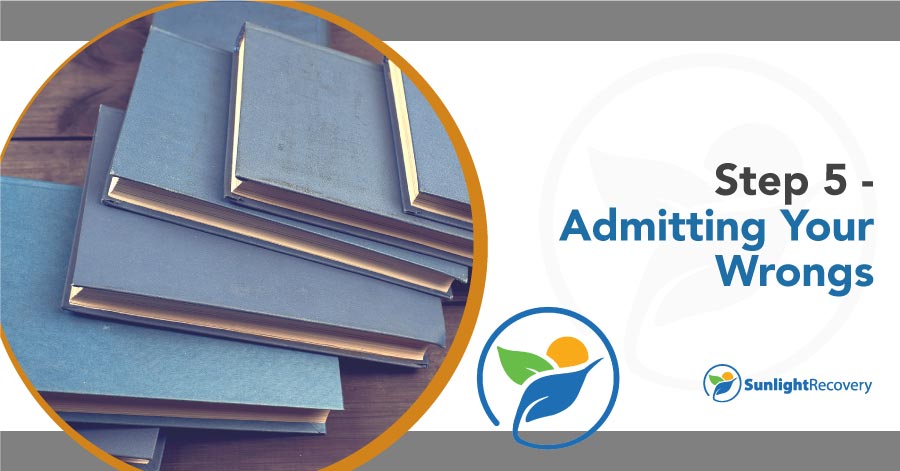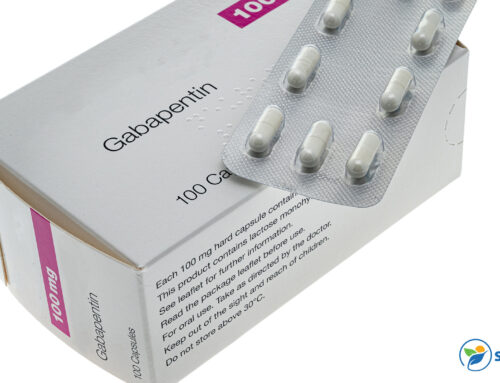The first four steps of Alcoholics Anonymous (AA) deal with powerlessness, reckoning with a higher power and coming to terms with the past. In Step 5 of AA, the focus shifts to the present as you’re given the task of admitting your wrongs.
Often known as the “confession step,” admitting your wrongs internally and externally is a powerful part of the recovery process. Building on your acceptance of the past in Step 4, the 5th step in AA calls on you to take responsibility for your mistakes.
While admitting your wrongs is easier said than done, this step is crucial for establishing a proper foundation of recovery from overcome alcohol use disorder, which affects one in 10 Americans today. Read on for answers to your AA Step 5 questions, and find out what makes the admission of wrongdoing so important.
Understanding Step 5 in AA
Step 5 in AA requires a thorough understanding of what this step is truly asking you to do. The official “Twelve Steps and Twelve Traditions” book explains that upon finishing Step 5, you’ll have “admitted to God, to oneself, and to another human being the exact nature of [your] wrongs.”
This step stems from the belief that true recovery and peace can’t be attained without first making peace with your mistakes. Though it may be difficult, confessing your wrongdoings to others allows you to release them and continue the recovery process with a clean slate. Admitting your mistakes can also be a cathartic experience, one that will ease your emotional burden and help you along the path to lifelong sobriety.
What Does It Mean to Admit Your Wrongs?
If you’ve made it to the fifth step of AA, you’ve likely already accepted that you’ve made mistakes — just like everyone else. Step 4 in particular requires you to reflect on your past and learn from old mistakes. Step 5 of AA builds on this practice by calling on you to confess past wrongdoings to yourself, to a higher power and to another human being.
Admitting your wrongs is more than simply stating that you suffer from alcohol use disorder. Alcohol abuse is responsible for three million deaths every year and can cause severe emotional and economic damage to both those it affects and their loved ones. Your admission in Step 5 acknowledges any hand you’ve had in harming yourself and others as a result of alcohol misuse.
By making an honest confession, you simultaneously come to terms with your mistakes while building a foundation for healing. You’ll also prepare yourself for later steps that involve addressing character defects and making amends with others.
Overcoming Step 5 Difficulties
AA’s Step 5 is often considered the most challenging part of the 12-step process. It’s natural to be fearful of confessing your mistakes to another person. After years of hiding shortcomings and keeping secrets, admission can require a dramatic behavioral shift.
True success in the fifth step of AA begins in Step 4. By properly reflecting on your past and acknowledging you’ve made mistakes, you’ll find it much easier to admit this to others.
The Importance of Admitting Your Wrongs
Every step in AA’s 12-step program serves a purpose, and the admission of wrongdoing is no different. There are three individuals you must confess to on your road to recovery:
- Yourself
- A higher power
- Another human being
Each admission will affect you differently. Here’s why all three are an integral part of the healing process.
Admission to Yourself
If you’ve completed Step 4 of AA, you’re already halfway done with the first portion of Step 5. But while Step 4 consists of accepting the past for what it is, the fifth step asks you to take responsibility for the role you played in your mistakes.
Admission to yourself requires absolute honesty and humility. This stage of confession will help you overcome the fear and egotism that threaten to derail your progress. Once you’ve accepted your past transgressions for what they are, you’ll be ready to admit such mistakes to someone other than yourself.
Admission to a Higher Power
Spirituality plays a powerful role in AA’s 12-step process. A higher power can be interpreted as God in the traditional sense or as a broader spiritual entity.
Admission to a higher power can be an extremely inspirational and cathartic experience. As the first confession you make externally, it gives you the chance to practice being open and raw while connecting with your spiritual side. Dialogue with a higher power may even remain a powerful motivator throughout your recovery.
Admission to Another Human Being
Confessing your misdeeds to another human being can be a difficult task. The fear of judgment, rejection or alienation is enough to make anyone think twice, but it’s crucial you don’t skip this step.
Admission to another person often makes your mistakes feel very real. While this can be scary, it can also be a great source of self-esteem as — more often than not — your confession will be met with forgiveness and understanding. When this happens, it’s common to feel a wave of overwhelming relief.
Confessing to the right person is critical to the success of Step 5. Many people choose to admit their mistakes to a sponsor or fellow AA member who’s likely to display a deep sense of empathy and understanding for your experience.
Admission of Wrongs: The Key to Recovery
The first four steps of the 12-step process are centered around reflection and self-discovery. Step 5 marks the start of actionable tasks that will help you overcome past mistakes and build a solid foundation on which to build your recovery.
By admitting your wrongs, you simultaneously eliminate pride and transcend your fear of not finding forgiveness. Though Step 5 can be a challenge, it’s also a source of great freedom as you release the guilt and shame that’s followed you.
Find Guidance on Your Sobriety Journey With Sunlight Recovery
While your chance of recovering from alcoholism can more than double by participating in a 12-step AA program, you shouldn’t have to do it alone. High-quality alcohol addiction treatment is available right now at Sunlight Recovery.
Your recovery doesn’t have to be an individual process. Visit Sunlight Recovery today and take the first step on the path to sobriety.






